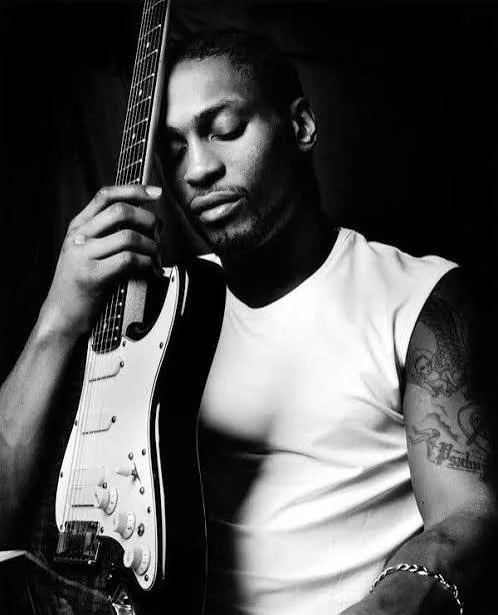How Does It Feel: Remembering D’Angelo and His Sonic Love Letters to Black Women
I’ve been trying to put into words my feelings about D’Angelo’s passing. On our radio show, Soul II Soul, Christian asked me, “As a Black woman, how has D’Angelo’s music impacted you?” And that’s when it clicked for me.
Michael Eugene “D’Angelo” Archer
The average Black experience is so deeply woven into music. It’s the heartbeat of our culture. Eight times out of ten, you grew up with music starting in the home, often serving as an emotional barometer for your parents. A warning. A motivator. A celebration. An outlet.
In my household, music meant my mother was either in a great mood or she needed the inspiration to get her there. As a single mother of three, she shielded us from her lowest moments, but as the oldest, I could always tell how she felt. Not through her words, but through the music she played.
We couldn’t fully comprehend it back then, but there was a specific feeling we witnessed the Black women in our family embody to the sounds of Marvin Gaye, Teddy Pendergrass, Prince, Janet Jackson, Sade, Jodeci, and D’Angelo. I remember being in rooms with my mother, aunties, older cousins and watching everyone slow down. A collective “mmm!” would echo as Questlove’s first drum note tapped in and Raphael Saadiq’s guitar glided through Untitled (How Does It Feel). Eyes would close, heads tilt back toward the ceiling, and bodies would sway, hands pressed to chests, belting every note from deep within. I watched women who were taught to be strong no matter what — to hold their pain, to put themselves second, third, or last — soften. I watched my mother’s guard come down.
I now know that moment to be sensuality in practice, whether intentional or not. To see Black women comfortably, confidently embracing that softness, that vulnerability, through his music feels like a privilege. D’Angelo’s sound was inherently sensual, but not in a way that objectified. It celebrated. It affirmed. It gave permission. He empowered our people to feel, to reconnect with our own rhythm and passion. His music carried a truth that you couldn’t fake and a groove you couldn’t stop.
For Black women especially, D’Angelo’s music was liberation in melody form. It allowed them to exhale. To be desired, to be seen, to be tender, to be free. He didn’t just make music for women; he made music that honored them. His voice, his vulnerability, his unapologetic sensuality reflected back to us that softness is not weakness. It’s sacred. His songs became a mirror, reminding Black women that they could hold strength and sensuality in the same breath.
Fast forward to 2015 — I’m a young woman fresh in her 20s, going on a date with a man I met through a mutual friend. As we rode through the night, one of the first songs he played was Cruisin’. The intimacy carved into D’Angelo’s tone is ethereal. Both lovers and enthusiasts of music, we sang the hell out of that song. That moment felt like peak romance, the kind that doesn’t need grand gestures, just two people floating in sound, connected by a voice that felt like home.
D’Angelo was more than an artist, he was a vessel. He reminded us of the divine that lives in groove, in vulnerability, in soul. His passing feels heavy because we didn’t just lose a voice; we lost a frequency that connected us to something higher.
Rest easy, D’Angelo. Thank you for giving us music that touched the spirit, freed the body, and reminded us to feel.

